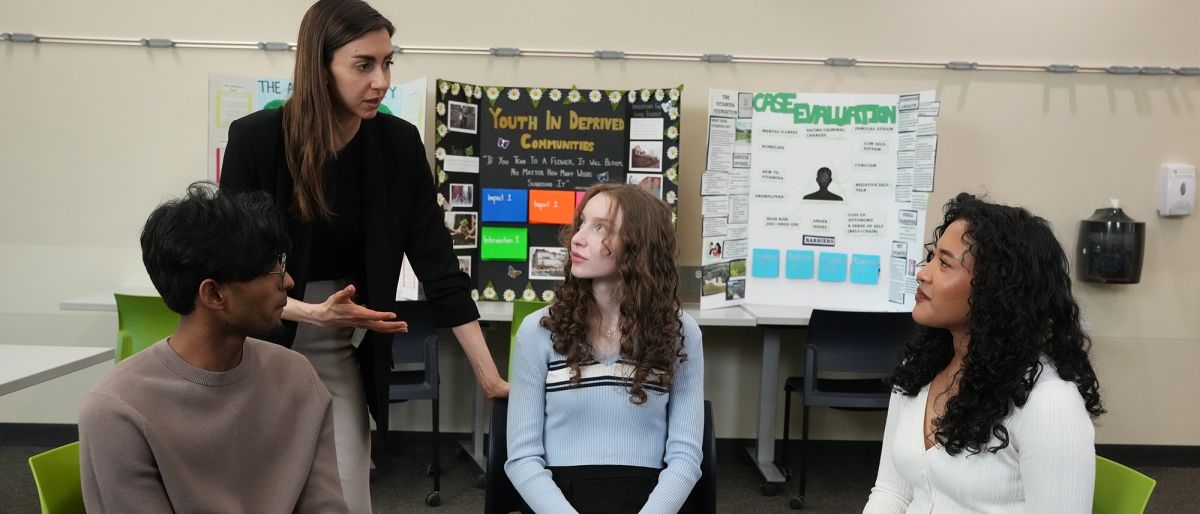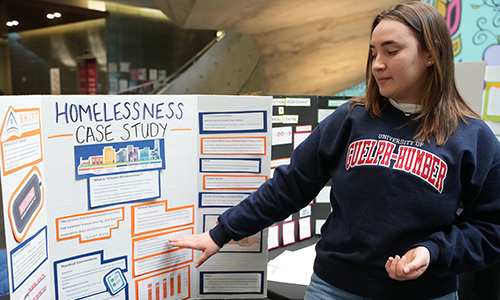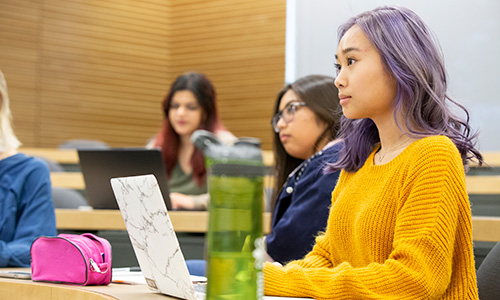
Social Services & Well-Being Studies
Explore the Program
You are motivated by the care and empathy you have for others.
Here, you’ll grow that compassion and sense of advocacy — expanding your impact from supporting individuals to influencing broader social and political change.
So, take this bold step toward building a better world. Go be a change maker.
Earn 2 Credentials:
- Honours Bachelor of Applied Science in Social Services & Well-Being Studies from University of Guelph
- Social Service Worker Diploma from Humber Polytechnic
Click on your applicant type below to get program information tailored for you!



